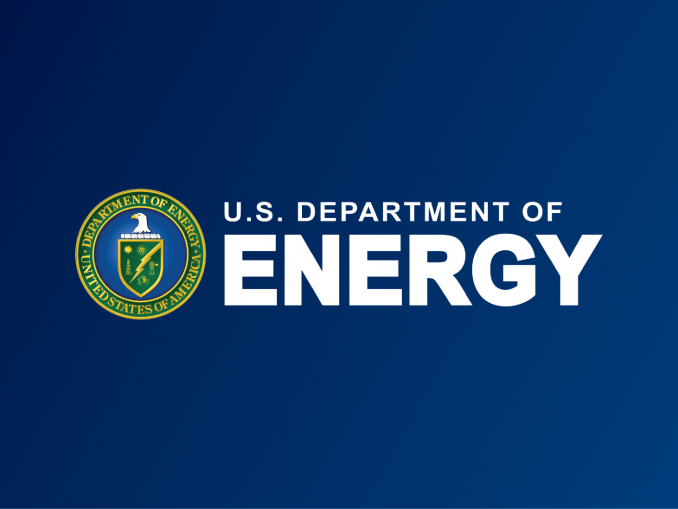
WASHINGTON, D.C. — As part of President Biden’s Investing in America agenda, the U.S. Department of Energy (DOE) today announced up to $22 million to improve planning, siting, and permitting processes for large-scale renewable energy facilities. Six state-based projects will receive $10 million through the Renewable Energy Siting through Technical Engagement and Planning (R-STEP) program to develop and expand statewide initiatives that provide expertise, trainings, and technical resources to local governments and communities as they plan for and evaluate large-scale renewable energy and energy storage projects. DOE also announced its intent to open a second round of the program with up to $12 million in funding from President Biden’s Inflation Reduction Act. Large-scale wind, solar, and energy storage projects will play a pivotal role in decarbonizing the grid to achieve President Biden’s goals of a 100% clean electricity sector by 2035 and net-zero emissions economy by 2050.
“Solar and wind energy and battery storage are on the rise throughout America. This year, we expect these to make up a record-breaking 94% of our nation’s new electric-generating capabilities,” said U.S. Secretary of Energy Jennifer M. Granholm. “Often, the biggest barrier to deploying that clean generation is siting and permitting. The Biden-Harris Administration is helping provide local leaders with the resources needed to deploy more clean energy to their residents in a way that is tailored to their unique needs.”
Solar and wind power will need to provide up to 80% of U.S. electricity to achieve 100% clean electricity by 2035, so removing barriers to rapid deployment is critical. A significant portion of large-scale renewable energy and energy storage projects are likely to be built on private lands, where state and local authorities make permitting decisions. The R-STEP collaboratives will evaluate the needs of their stakeholders and develop state-specific educational materials and technical assistance programs.
Deploying large-scale renewable energy projects in a way that is informed by meaningful community engagement can unlock opportunities for community wealth-building, workforce development, increased grid resilience, and electricity bill savings, especially in rural or underserved communities. Through these collaboratives, state-based entities will act as trusted messengers to provide the capacity and knowledge needed for rapid, equitable expansion of clean energy.
The collaboratives bring together stakeholders from all sides of the energy planning process, including state and regional agencies, universities, developers, technical experts, public service commissions, farmers unions, tribes, community organizations, and other trusted entities. The selected collaboratives are:
- Indiana: Led by Purdue University Extension, the collaborative will serve as a technical resource and community engagement hub to assist Indiana communities with renewable energy planning, evaluation, and decision-making (Award amount: $1.9 million)
- Iowa: Led by Iowa State University Extension and Outreach, the collaborative will develop and disseminate educational resources for city- and county-level officials planning for renewable energy and energy storage facilities. The collaborative will also translate materials to Spanish and provide facilitation services to Iowa communities (Award amount: $1.7 million)
- Michigan: Led by Michigan Department of Environment, Great Lakes, and Energy, the collaborative will establish a one-stop-shop for resources and experts in the field of renewable energy siting and provide no-cost technical assistance to Michigan communities (Award amount: $2 million)
- Mississippi: Led by Mississippi Development Authority Energy & Natural Resources Division, the collaborative will develop a large-scale solar energy development playbook and training course and provide technical assistance in collaboration with the Mississippi planning and development districts (Award amount: $2 million)
- North Carolina and South Carolina: Led by the North Carolina Clean Energy Technology Center, the collaborative will create an online technical assistance and education hub to respond to specific concerns and needs from communities, local governments, landowners, and developers in North and South Carolina (Award amount: $2 million)
- Wisconsin: Led by the University of Wisconsin-Madison Division of Extension, the collaborative will engage stakeholders and expand education and facilitation services to rural communities in the state to achieve coordinated, equitable, inclusive, and transparent processes for renewable energy and battery storage facility siting (Award amount: $1 million)
Learn more about the selected state-based collaboratives including the full list of partners.
More information on round two, including how to apply, will be available in the coming weeks. Sign up for the Office of Energy Efficiency and Renewable Energy funding email list to be notified when this funding is released.
Learn more about large-scale renewable energy siting.
R-STEP is funded by the DOE Solar Energy Technologies Office and Wind Energy Technologies Office.
Round One of the R-STEP program is administered by ENERGYWERX. This funding mechanism is made possible through the innovative Partnership Intermediary Agreement set up by the DOE Office of Technology Transitions.
Selection for award negotiations is not a commitment by DOE to issue an award or provide funding. Before funding is issued, DOE and the applicant will undergo a negotiation process, and DOE may cancel negotiations and rescind the selection for any reason during that time. DOE award amounts are subject to change pending negotiations.










